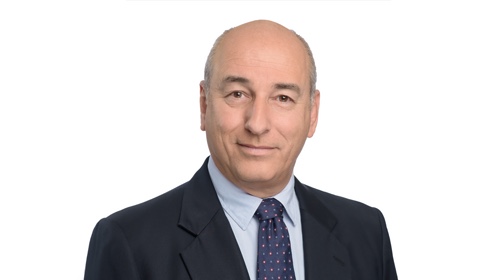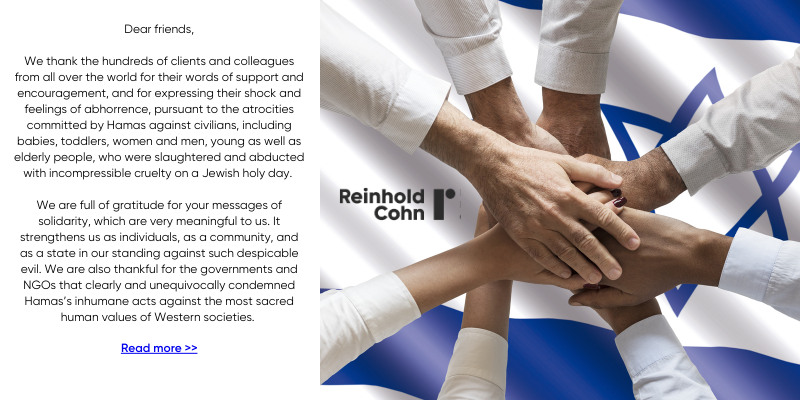Supreme Court refuses additional hearing in landmark parallel imports case

In Tommy Hilfiger Licensing LLC v Swissa (ACH 8619/14, February 15 2015), the Israeli Supreme Court has refused to grant an additional hearing in a case concerning the issue of parallel importation. In a unanimous appellate judgment issued at the end of last year, the Supreme Court had significantly relaxed the restrictions imposed by the district court in this case, defining for the first time the scope of permissible use of registered trademarks by parallel importers.
The Supreme Court, in a decision handed down by Deputy President of the Court Justice Rubinstein, held that the appellate judgment, which adopted a relatively liberal approach to parallel importation and to a parallel importer’s freedom to use a brand owner’s marks in connection to the offer for sale of its goods, developed the principles of existing law and did not lay down novel law.
In 2012, in a lawsuit brought by the Tommy Hilfiger Group against a local importer which had undertaken an aggressive marketing campaign, the Tel Aviv District Court found the parallel importer of genuine Tommy Hilfiger goods liable for trademark infringement. The district court held that the importer’s intensive use of Tommy Hilfiger’s marks and of the colours of Tommy Hilfiger’s flag logo exceeded the scope of legitimate “truthful use” necessary for marketing the goods. The court imposed numerous and broad restrictions on the importer’s use of the marks in store, on its website and in marketing campaigns, and awarded IS457,000 in damages.
In the appellate judgment of 2014, the Supreme Court partially upheld the importer’s appeal and lifted most of the restrictions imposed by the district court, as well as reducing the amount of damages to IS100,000. The Supreme Court adopted as its starting point the legitimacy of parallel importation, and noted the already recognised benefits of parallel importation on fair terms.
The Supreme Court applied the three-prong test to determine the legitimacy of use of another’s trademark – namely:
1. the ‘identification’ test (ie, whether it is possible to identify the goods without referring to the
trademark);
2. the ‘necessity of use’ test (ie, the extent to which use of the trademark is necessary); and
3. the ‘sponsorship’ test (ie, whether use of the trademark creates confusion as to sponsorship by the
trademark owner).
Based on the three-prong test, the court held that, in a parallel importation context, the ‘identification’ and ‘necessity to use’ tests are likely to be met, and the most important test would be the ‘sponsorship’ test.
Tommy Hilfiger petitioned for an additional hearing, arguing that the ruling resulted in granting an unauthorised seller of genuine goods an unlimited right to use the manufacturer’s trademark as long as it indicates that it is not operating under the owner’s sponsorship. Therefore, it represented a novel ruling that created hardship for trademark owners and disproportionately limited their right to the exclusive use of their marks when not affixed to the goods. The petitioner suggested re-examining the determinations that the criteria of the ‘genuine use’ test were not adapted to the context of parallel importation and that the importer was entitled to benefit from the reputation of the product and from the goodwill of the trademarks. The petitioner further argued that the court had not struck the right balance between the interests of free competition and the protection of trademark owners.
The Supreme Court refused the petition for an additional hearing. It held that, given the criteria for granting an additional hearing, even if the judgment in question laid down new law in respect of restrictions that may be imposed on parallel importation, having regard to the desire to encourage competition on fair terms, it was not so special and extraordinary as to materially change previous law and thus warrant an additional hearing. The Supreme Court concluded that the determinations of the appellate judgement were in line with existing law – they developed existing law but did not contradict it. Therefore, as in the earlier case of adidas Salomon AG v Yassin (ACH 6658/12), they did not warrant an additional hearing, especially as the judgment in question was unanimous.
The judge, however, expressed certain reservations regarding the importer’s conduct and free-riding, alongside the considerations of public interest in free competition (which may centre on interbrand competition, rather than intrabrand competition). The court opined that the key concept was fairness, both for trademark owners seeking to protect their rights and for the public at large interested in competition and Parallel imports lower prices, with the legal system finding a balance between these divergent interests through a dynamic process. The Supreme Court concluded that, while it had struck the balance differently from the district court (ie, more in favour of parallel importers), such balance rested on appropriate principles and did not warrant an additional hearing; the law would likely be developed further depending on future developments in business reality.
This article first appeared on WTR Daily, part of World Trademark Review, in March 2015. For further information, please go to www.worldtrademarkreview.com
This article is provided for general information only. It is not intended as legal advice or opinion and cannot be relied upon as such. Advice on specific matters may be provided by our group’s attorneys.

